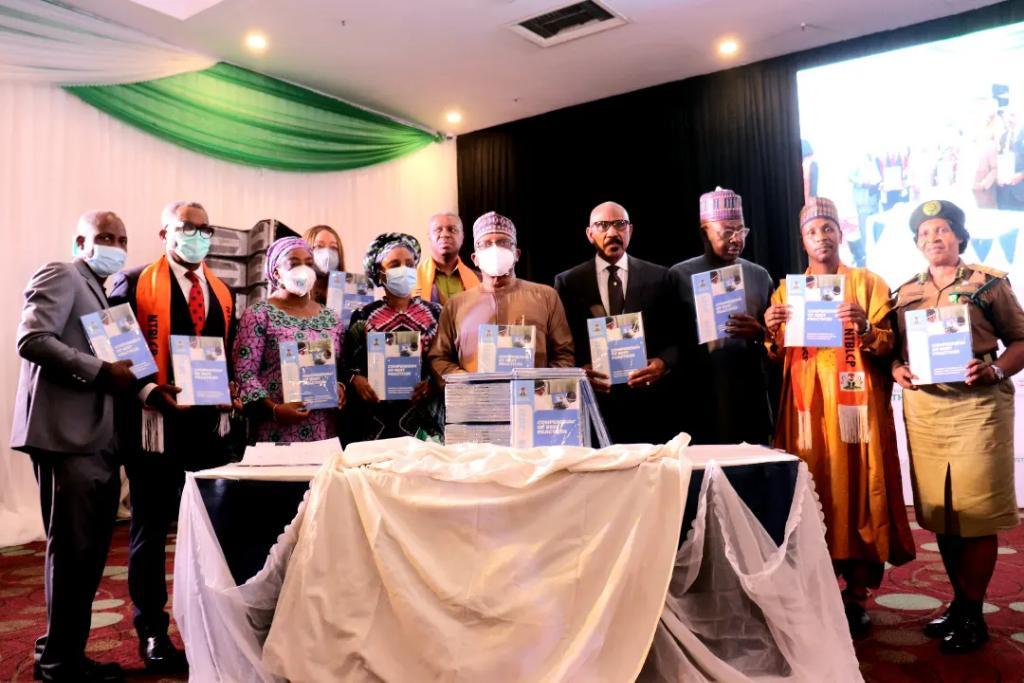By Iyemah David
The National Tuberculosis, Buruli Ulcer, and Leprosy Control Program (NTBLCP), has launched the compilation of best practices, and lessons learnt from the laudable results in Tuberculosis (TB), case finding and success stories.
The Minister of Health, Dr Osagie Ehanire, while unveiling the NTBLCP’s Compendium of Tuberculosis Best Practices, on Thursday in Abuja, disclosed that the integration of TB and COVID-19 led to a 15 per cent increment in TB case notification.
Nigeria has the highest TB burden in Africa, “the 6” globally and 1 of 10 countries that accounts for 70 per cent of the global gap between the estimated global incidence of multidrug-resistant TB each year and the number enrolled on treatment.
Ehanire said the integration made Nigeria one of the few countries in the world to record an increase in TB case notification in 2020.
“The implementation of innovative strategic interventions put in place by the TB programme managers, including the integration of TB control into COVID-19 response measures, eventually led to a 15 per cent increase in TB notification from 120,266 cases in 2019 to 138,591 in 2020.
“Further to this, NTBLCP again recorded a remarkable increase in 2021 annual T notification, when numbers increased by 50 per cent from 138,591 in 2020 to 207,785 in 2021,” he said.
The minister said that the history of TB control in Nigeria, in which the country was showcasing best practices that have enabled the steady and marked increase in TB notification in the nation over the past few years.
“At the peak of the COVID-19 pandemic in 2020, there was an 18 per cent drop in globally in the number of TB cases diagnosed and notified; from 7.1 million in 2019 to 5.8 million in 2020. In the same period, TB deaths increased significantly as a result of reduced attention to treating TB patients.
“Nigeria, as with many other countries, suffered the impact of the COVID-19 pandemic, with negative socioeconomic trends and health service disruptions.
“Following the introduction of lockdown measures for pandemic control in the second quarter of 2020, TB testing reduced by about 30 per cent resulting in a 17 per cent reduction in TB case finding and notification,” he explained.
The Minister said that the NTBLCP has packaged in the Compendium of Best Practices, that strategic intervention and measures that enable the consistent increase in TB case notification over the past three years.
“I trust that this compendium will be a useful tool for all stakeholders, as we continue to scale up what worked well for us, to help us further maximise the yield from all our investments in TB control.
“Other disease control programmes and indeed other countries, can learn and leverage on experiences captured in this document, to support their disease control efforts,” he said.
The Director and National Coordinator, NTBLCP, Dr Chukwuma Anyaike, said that since the inception of the National TB programme, Nigeria had maintained a treatment coverage rate of less than 24 per cent.
Dr Anyaike said that the compendium narrows down the best practices that yielded results in the states bringing out the applied strategies that made the difference in each intervention.
He said that If TB is defeated in the country, this would have reduced the TB burden in Sub-Saharan Africa by 50 per cent.


